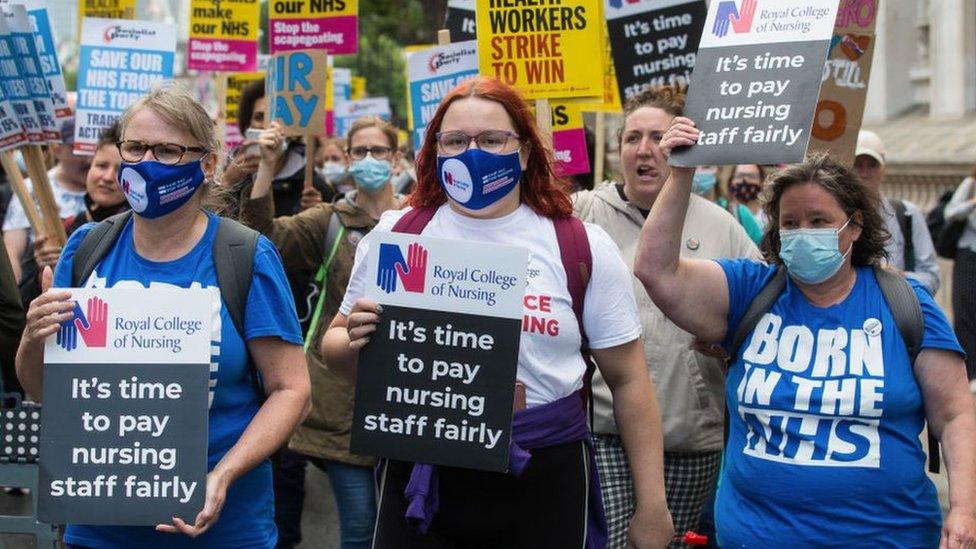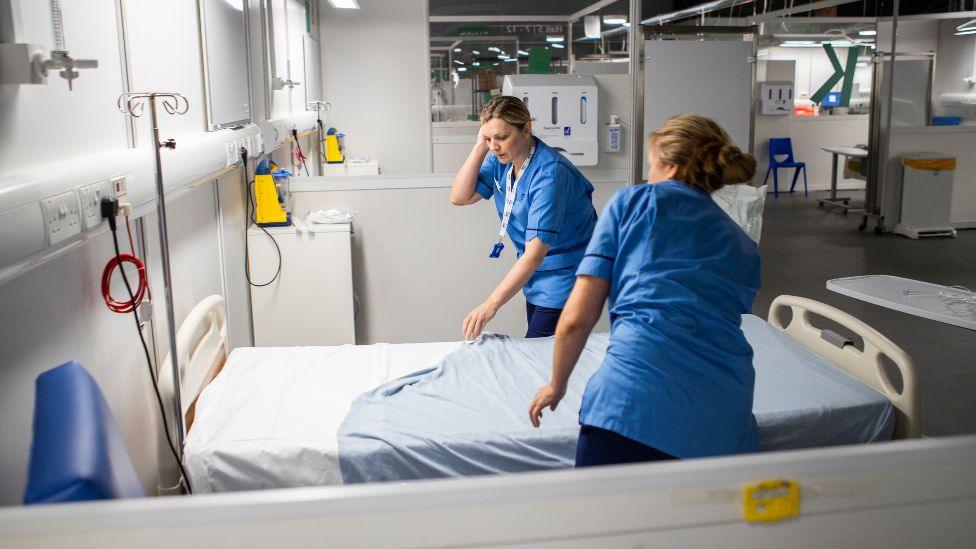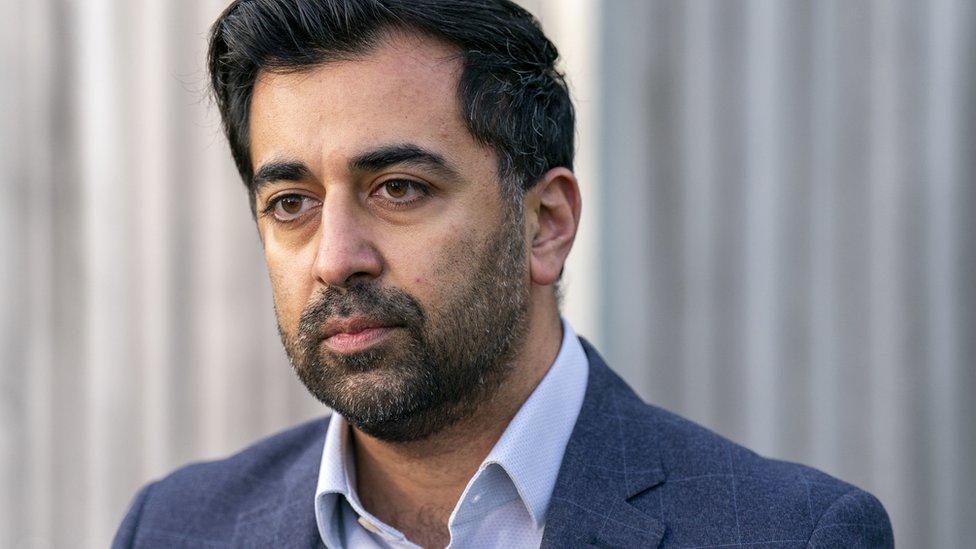Scottish NHS strikes on hold while pay offer negotiated
- Published

The Royal College of Nursing and GMB have put strike action on hold
The threat of widespread strike action in Scotland's NHS has been put on hold by unions.
The GMB and Royal College of Nursing will not call strikes while negotiations take place on the 2023 pay offer, BBC Scotland understands.
Health secretary Humza Yousaf said the breakthrough was "very welcome".
Negotiations are likely to take several weeks and the unions still have a mandate to call members out on strike if they are unsuccessful.
If a deal is reached, the pay rise would be backdated to January.
The announcement follows talks with the Scottish government on Thursday, aimed at ending the long-running pay dispute affecting staff in NHS Scotland and the Scottish Ambulance Service (SAS).
The three unions with mandates to strike are the GMB, the Royal College of Nursing (RCN) and the Royal College of Midwives (RCM).
They said they would now enter an "intensive period of negotiations" on the 2023 pay deal.
All three unions rejected the 2022 pay offer which was worth around 7.5% on average. It was accepted by others including Unison and Unite.

Unions still have a mandate to call NHS staff on strike if pay talks are unsuccessful
On Thursday, the Scottish government made new proposals including accelerated negotiations on the 2023 pay offer, and an extra payment for staff.
RCN Scotland said it had paused a formal announcement of strike action in response to the talks.
Pat Cullen, RCN General Secretary said: "The Scottish government has shown a willingness to return to the negotiating table and to act to address the nursing workforce crisis.
"The pressure from our members has been key to these negotiations moving forward. We need to see this process through. "
'Good faith'
The GMB said Mr Yousaf had made a commitment to effectively backdate the value of any agreed terms for 2023 to January, with the deal fully implemented by April.
The union said that negotiations would start next week.
GMB Scotland senior organiser Keir Greenaway said: "GMB is prepared to engage in good faith with the Scottish government on fresh proposals to resolve this dispute.
"This has been a marathon for our members and there is still some distance to go, but their strength has now secured more money for all staff in the year ahead."

Health Secretary Humza Yousaf held talks with unions leaders on Thursday
The RCM said it was "cautiously optimistic" that Mr Yousaf would meet its calls for a decent pay deal.
But the union said its mandate for industrial action remained and it "would have no hesitation in using it" if talks did not progress.
RCM Scotland director Jaki Lambert said: "We are grateful to the cabinet secretary that he has acknowledged this and has committed to finding a meaningful solution to this dispute.
"We are hopeful that this is a turning point in the dispute which, yes, is focused on pay, but is just as much about the conditions our members have to work in."
'Constructive and open'
Strike dates had been due to be announced before the latest breakthrough. Scotland's health secretary Humza Yousaf welcomed the move.
He said: "I have always maintained that I will leave no stone unturned in order to avert industrial action in our health service.
"This positive way forward is a direct result of all parties continuing meaningful dialogue in a constructive an open manner.
He added: "This is in stark contrast to the UK government, who have this week introduced draconian legislation curbing the rights of staff in Scotland's NHS and other devolved public services.
"I would urge the UK government to follow Scotland's example and get back round the negotiating table."


The threat of strikes in the NHS in Scotland is not over but the possibility is now greatly reduced.
It would have been difficult to reopen the 2022 pay deal. It had been accepted by other major NHS unions including Unison and Unite.
The idea is that this year's offer - which would normally apply from April - will be backdated to January.
There can be no certainty that a deal will be reached though.
If talks fail, strikes are still an option.
But the chance of strike action adding to the difficulties facing the NHS over the winter is now greatly reduced.
Related topics
- Published21 December 2022

- Published23 December 2022
